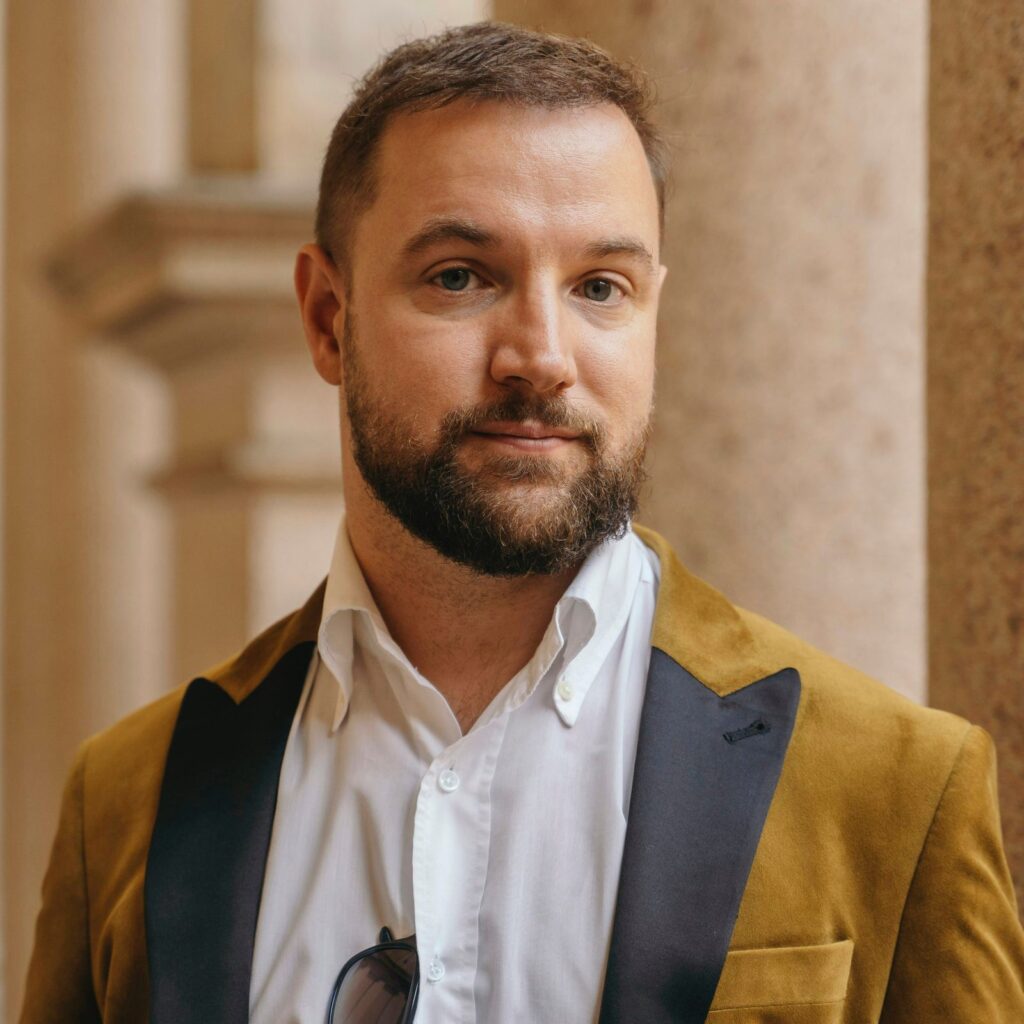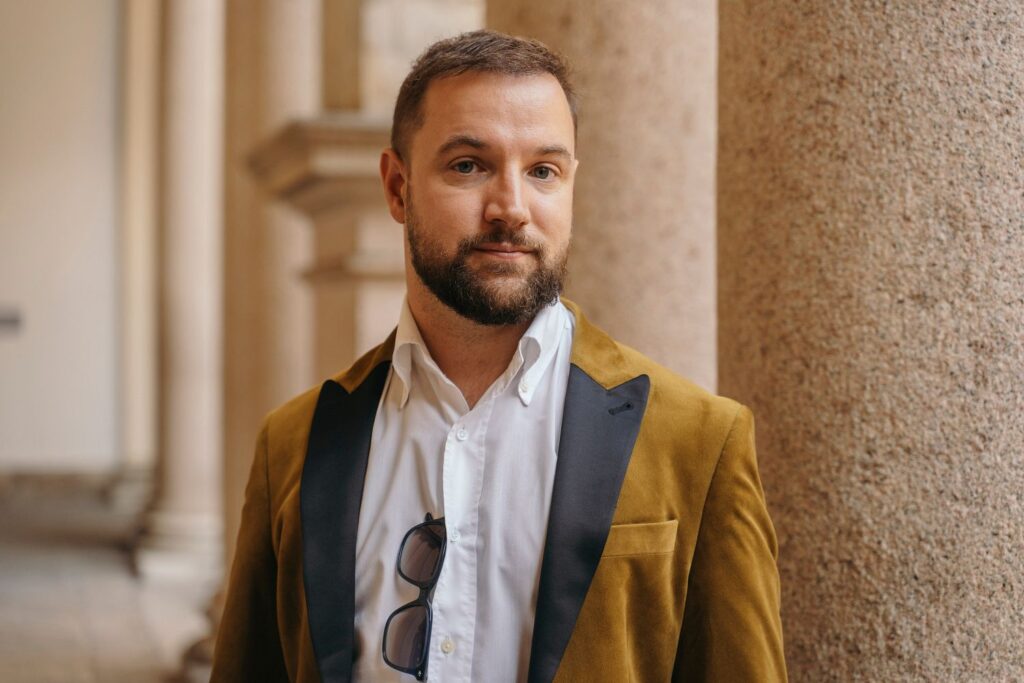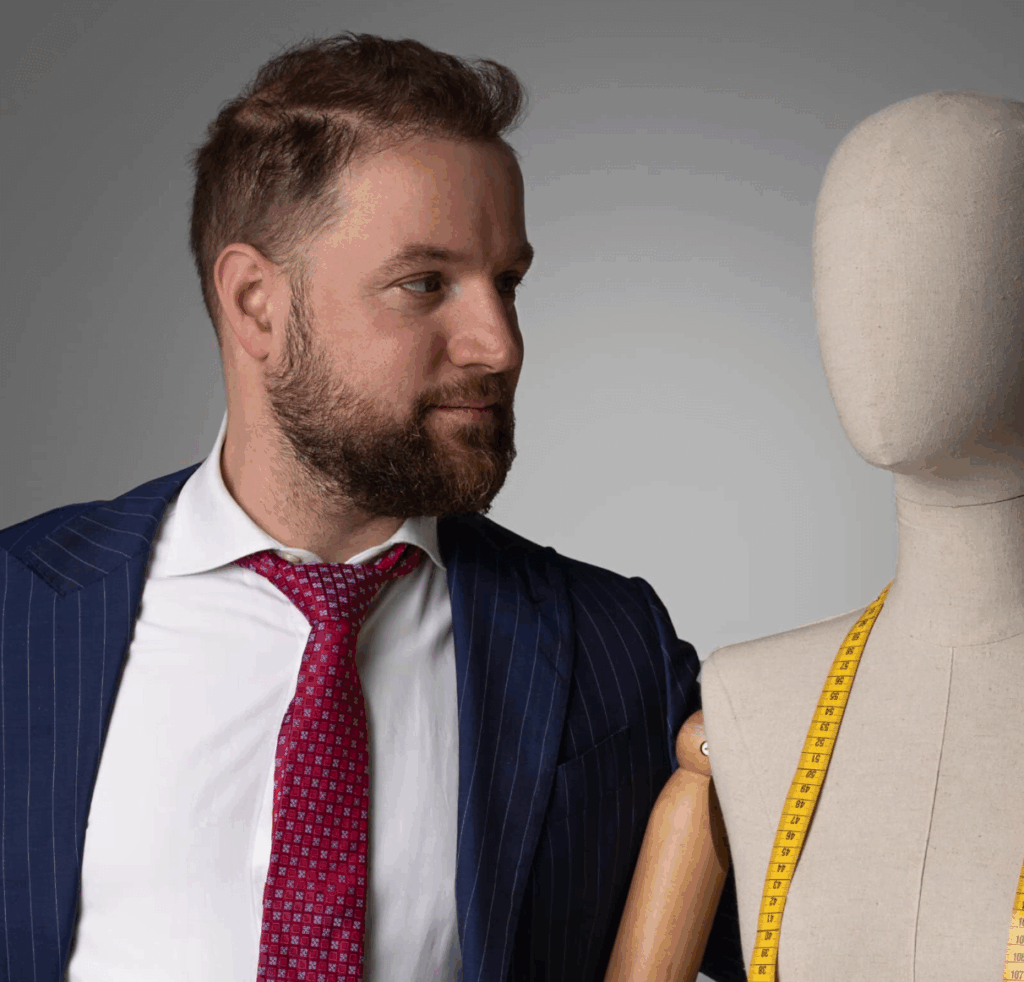Over 70 percent of high net worth individuals now prioritize unique brand experiences over traditional luxury purchases. This shift is redefining what true exclusivity means. Today’s most successful luxury brands stand out by tailoring every interaction to the individual, weaving personal preferences and emotional touches into each moment. True influence comes from making clients feel genuinely understood and valued, turning brief encounters into lasting connections that set brands apart at the highest level.
Quick Summary
| Takeaway | Explanation |
|---|---|
| 1. Create hyper-personalized brand experiences. | Luxury brands should design unique interactions, enhancing emotional connections with high net worth clients through tailored events and exclusive access. |
| 2. Employ psychology-driven storytelling. | Develop narratives that resonate emotionally, allowing consumers to see themselves in the brand’s story and aligning with their aspirations. |
| 3. Prioritize sustainability as a core value. | Authenticity in sustainable practices is crucial; brands must demonstrate genuine commitments to ethical sourcing and environmental responsibility. |
| 4. Utilize AI for personalization. | Leverage artificial intelligence to craft individualized marketing strategies that predict and meet client desires while respecting their privacy. |
| 5. Build exclusive community ecosystems. | Transform consumers into engaged members through invitation-only events and tiered memberships, fostering deeper brand connections. |
Table of Contents
- Personalized Brand Experiences For Hnw Clients
- Psychology-Driven Storytelling In Luxury Marketing
- Sustainable And Ethical Branding Initiatives
- Ai-Powered Personalization For Premium Segments
- Seamless Phygital Integration For Brand Consistency
- Exclusive Community Building Around Luxury Brands
- Leveraging Micro-Influencers For Authentic Exposure
1. Personalized Brand Experiences for HNW Clients
Luxury brands are revolutionizing client engagement through hyper-personalized experiences that transform traditional marketing into immersive interactions. The new paradigm goes far beyond standard customer service transforming high net worth (HNW) interactions into exclusive social and emotional connections.
According to the Financial Times, top luxury houses like Cartier and Chaumet are pioneering this approach by hosting invitation-only events that do more than showcase products they create status-enhancing social ecosystems for elite clients.
What makes these experiences remarkable? They are meticulously crafted to make wealthy clients feel uniquely understood. Brands are now designing multi sensory experiences that blend:
- Personalized event invitations tailored to individual client preferences
- Exclusive access to limited edition collections
- Private consultations with brand artisans and designers
- Curated social gatherings that connect clients with similar interests
For brands targeting HNW individuals, the strategy is clear: treat each interaction as an opportunity to create emotional resonance. This means understanding client psychology deeper than demographic data. It means recognizing that luxury is no longer about products but about crafting memorable narratives that make clients feel extraordinary.
Read our guide on creating luxury brand experiences to dive deeper into these sophisticated engagement strategies that transform transactional relationships into lifelong brand connections.
2. Psychology-Driven Storytelling in Luxury Marketing
Luxury marketing is undergoing a profound transformation where emotional intelligence trumps traditional advertising techniques. The new frontier involves crafting narratives that do not just sell products but create deep psychological connections with consumers.
According to research on neurobranding, brands can build long term cognitive and emotional connections by understanding the intricate workings of consumer psychology. This approach goes beyond surface level marketing transforming storytelling into a strategic psychological experience.
Modern luxury brands are employing sophisticated strategies to create immersive narrative experiences that tap into fundamental human emotions and aspirations. This means understanding storytelling not as a communication tool but as a psychological bridge between brand and consumer.
Key elements of psychology driven storytelling include:
- Crafting narratives that reflect individual consumer identities
- Using emotional triggers that resonate with specific psychological profiles
- Creating stories that allow consumers to imagine themselves within the brand narrative
- Developing storylines that connect with deeper personal values and aspirations
Emergent technologies are also revolutionizing this approach. Research on generative AI suggests that artificial intelligence can now craft personalized narratives that align precisely with individual consumer psychology creating unprecedented levels of emotional engagement.
Explore our guide on understanding luxury brand storytelling to discover how psychological insights can transform your marketing approach from transactional to transformational.
3. Sustainable and Ethical Branding Initiatives
Sustainability has transcended from a mere marketing buzzword to a fundamental expectation for luxury brands. Modern consumers do not just want products they want meaningful commitments to environmental and social responsibility.
According to research from Hall and Partners, sustainability is becoming increasingly critical especially among younger generations who view ethical practices as a marker of true luxury and brand authenticity.
Leading luxury brands are demonstrating that sustainability can enhance rather than compromise brand exclusivity. Brands like Stella McCartney and Hermès are proving that ethical practices can be seamlessly integrated with exceptional craftsmanship.
Practical strategies for implementing sustainable branding include:
- Transparent supply chain reporting
- Investing in regenerative material sourcing
- Creating circular economy product lines
- Developing carbon neutrality roadmaps
- Supporting social impact initiatives
The key is authenticity. Consumers can quickly detect superficial greenwashing efforts. True sustainable branding requires genuine commitment demonstrated through measurable actions transparent communication and long term strategic planning.
Beyond environmental considerations brands must also address social sustainability. This means fair labor practices ethical sourcing responsible manufacturing and meaningful community engagement.
Read our comprehensive guide on developing consumer psychology strategies to understand how ethical practices can transform your brand’s market positioning and consumer perception.
4. AI-Powered Personalization for Premium Segments
Artificial intelligence is revolutionizing luxury marketing by creating hyper personalized experiences that feel simultaneously sophisticated and intimately tailored. The future of premium marketing is about understanding individual client desires before they even articulate them.
According to research from Barker Bros, leading brands are leveraging zero party data and advanced AI tools to craft personalization strategies that respect client privacy while delivering extraordinary precision.
The cutting edge of AI personalization goes far beyond traditional segmentation. Modern AI models can generate predictive and contextual marketing experiences that feel almost intuitive. Research on the SLM4Offer AI model demonstrates how contrastive learning can dramatically improve offer acceptance rates by understanding nuanced client preferences.
Practical applications for luxury brands include:
- Dynamic product recommendations based on individual client history
- Personalized event and collection previews
- AI powered styling consultations
- Predictive authentication for vintage and resale luxury items
- Customized communication channels and messaging
The most successful brands will treat AI not as a technological tool but as an intelligent relationship builder. This means creating experiences that feel simultaneously high tech and deeply human transforming artificial intelligence into a mechanism for genuine connection.
Learn more about microtargeting strategies in luxury marketing to unlock the full potential of AI driven personalization for your premium brand.
5. Seamless Phygital Integration for Brand Consistency
The future of luxury branding transcends traditional boundaries merging physical and digital experiences into a unified sensory ecosystem. Phygital integration represents more than technological innovation it is about creating seamless narrative continuity across every client touchpoint.
According to Barker Bros research, leading luxury brands are leveraging high fidelity technologies like Unreal Engine and augmented reality to craft immersive experiences that preserve brand aesthetics across digital and physical realms.
Brands like Dior and Bulgari are pioneering this approach. Dior’s AR enabled perfume packaging for Vision Pro and Bulgari’s virtual boutique showcase how immersive technologies can enhance brand storytelling without compromising luxury’s intrinsic sense of exclusivity.
Key strategies for phygital integration include:
- Creating consistent visual language across digital and physical platforms
- Developing interactive digital experiences that mirror physical brand environments
- Implementing augmented reality product visualization
- Designing seamless omnichannel customer journeys
- Maintaining brand aesthetic integrity in virtual spaces
Successful phygital integration requires more than technological implementation. It demands a holistic approach where digital interactions feel as curated and intentional as physical brand experiences.
Learn more about the intersection of fashion and digital innovation to understand how luxury brands are redefining customer engagement in the digital age.
6. Exclusive Community Building Around Luxury Brands
Luxury branding has evolved from transactional relationships to creating intimate ecosystems of belonging. Modern luxury consumers do not just want products they want meaningful connections and exclusive experiences that make them feel uniquely valued.
According to the Financial Times, luxury brands are transforming client engagement through invitation only events that serve as strategic platforms for building deep and ongoing connections with top tier clients.
Innovative brands are pushing community boundaries by creating token gated digital experiences that leverage both technological innovation and psychological exclusivity. Barker Bros research highlights examples like Gucci Vault and Porsche’s NFT communities where access itself becomes a marker of status.
Strategic approaches for building exclusive brand communities include:
- Creating tiered membership experiences
- Designing invitation only digital platforms
- Developing private event ecosystems
- Implementing exclusive communication channels
- Crafting unique value propositions for community members
The most successful brand communities transform passive consumers into active participants creating a sense of belonging that transcends traditional marketing approaches. These communities become living brand extensions where members feel deeply connected and intrinsically valued.
Explore our insights into luxury consumer behavior to understand the psychological dynamics driving these sophisticated community building strategies.
7. Leveraging Micro-Influencers for Authentic Exposure
The era of massive follower counts is over. Authentic storytelling has become the true currency of luxury brand communication revealing that smaller voices often carry more genuine influence than massive celebrity endorsements.
Research from HM Luxury Consultancy demonstrates that micro influencers generate up to 8× higher engagement rates compared to macro influencers. These niche content creators deliver profound connection through genuine narrative rather than manufactured glamour.
A remarkable 2023 case study highlighted by the Influencer Marketing Hub showcased Zenduri successfully using micro influencers in the 10K to 100K follower range. Their strategy focused on personal unboxing experiences and authentic testimonials that resonated deeply with affluent audiences.
Strategic approaches for micro influencer partnerships include:
- Prioritizing value alignment over follower count
- Creating collaborative storytelling opportunities
- Developing long term relationship based partnerships
- Offering unique brand experiences
- Allowing creative content interpretation
The most effective micro influencer strategies transform traditional marketing into narrative driven brand experiences. These partnerships are less about reach and more about creating genuine emotional resonance with specific audience segments.
Explore our insights on influencer marketing strategies to understand how to build authentic brand narratives through strategic collaborations.
Below is a comprehensive table summarizing the key concepts and strategies around personalization, storytelling, and brand engagement in the luxury sector as discussed in the article.
| Concept/Strategy | Description | Key Takeaways |
|---|---|---|
| Personalized Brand Experiences | Luxury brands offer hyper-personalized events and interactions. | Create emotional connections, not just transactions. |
| Psychology-Driven Storytelling | Uses storytelling for emotional and psychological engagement. | Stories resonate with consumer values, creating strong brand connections. |
| Sustainable and Ethical Branding | Focus on environmental and social responsibility. | Genuine sustainability enhances brand authenticity and consumer trust. |
| AI-Powered Personalization | Uses AI for intuitive and personalized marketing. | AI creates precise, privacy-conscious experiences that build deep connections. |
| Seamless Phygital Integration | Integration of physical and digital brand experiences. | Provides consistent brand aesthetics in all consumer interactions. |
| Exclusive Community Building | Development of intimate, exclusive client communities. | Leveraging exclusivity fosters deeper client relationships and loyalty. |
| Leveraging Micro-Influencers | Utilizing micro-influencers for authentic brand exposure. | Higher engagement and genuine connections with niche audiences. |
Transform 2025’s Luxury Branding Trends Into Your Competitive Advantage
Are you challenged by the pressure to deliver hyper-personalized brand experiences, emotional storytelling, and true innovation in the luxury sector? As this article reveals, today’s luxury leaders must blend psychology-driven marketing, immersive experiences, and digital innovation to keep sophisticated clients engaged and loyal. But achieving this kind of difference requires more than just insight—it demands expert strategy and flawless execution that aligns with the core values of prestige, exclusivity, and authenticity.
Explore Marketing Fashion and discover how Corrado Manenti’s unique approach combines deep consumer psychology with real-world expertise in high-end branding. His strategies have been crafted specifically for leaders like you, seeking to stay ahead of the fastest-evolving trends in luxury—ensuring your brand’s presence is emotionally resonant and future-proof.

Ready to move beyond trend-chasing and create truly unforgettable brand moments? Visit Corrado Manenti’s official site or dive deeper into high-impact Personal Branding solutions. Take the next step now and position your brand at the forefront of luxury innovation before your competitors do.
Frequently Asked Questions
What are hyper-personalized experiences in luxury branding?
Hyper-personalized experiences involve crafting unique interactions tailored to individual client preferences, enhancing emotional connections. To implement this, design personalized invitations and create exclusive event experiences based on client data within your luxury brand.
How can I use storytelling to connect with luxury consumers?
Using storytelling means developing narratives that resonate with personal values and aspirations of your target audience. Start by creating content that reflects consumer identities and includes emotional triggers to deepen engagement.
What strategies can I adopt for sustainable branding in luxury?
To adopt sustainable branding, focus on transparent supply chain practices and invest in ethical material sourcing. Set measurable goals for sustainability initiatives, such as reducing carbon emissions by 30% over the next two years.
How does AI-powered personalization improve luxury marketing?
AI-powered personalization enhances marketing by tailoring client experiences based on their preferences and behavior. Start utilizing AI models to analyze customer data and implement customized recommendations within your marketing strategies to foster deeper connections.
What are effective methods for creating exclusive brand communities?
Creating exclusive brand communities involves developing invitation-only platforms and personalized experiences that foster a sense of belonging. Consider forming tiered membership systems to engage your top clients consistently and deepen brand loyalty.
Why should I consider micro-influencers for my luxury brand?
Micro-influencers offer higher engagement rates and genuine storytelling than traditional celebrity endorsements. To leverage this, partner with influencers that align with your brand values and create collaborative content that resonates authentically with the target audience.



